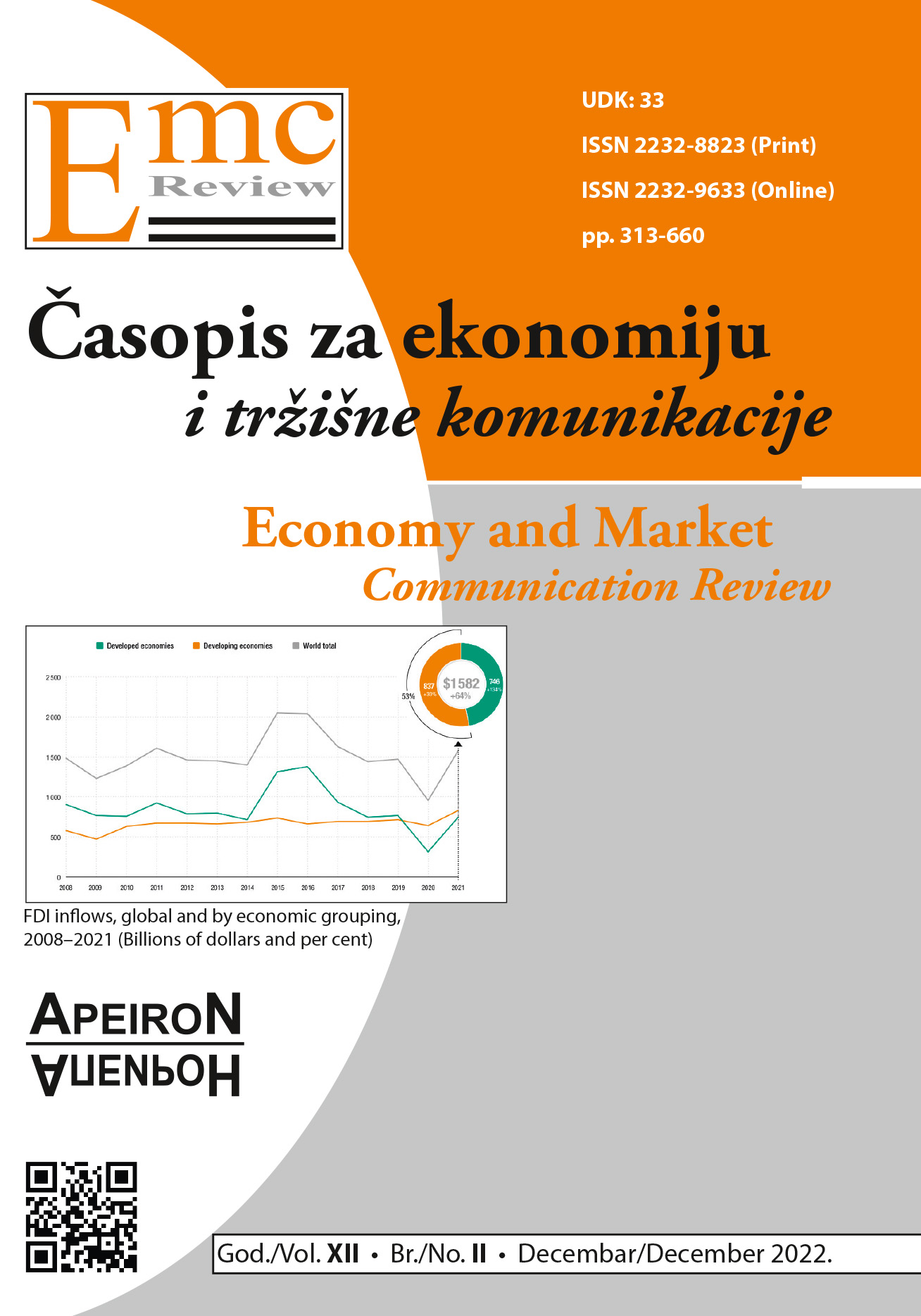THE ROLE AND SIGNIFICANCE OF DIPLOMACY ON ECONOMIC COOPERATION AND MARKET EXCHANGE OF COUNTRIES
DOI:
https://doi.org/10.7251/EMC2202618JAbstract
The international economy is a complex system between states, which is manifested through trade and financial ties. The functioning of the international economic system between countries contributes to faster economic growth, while, on the other hand, the existence of certain obstacles between countries has a negative effect on trade exchange and on the prosperity and economic well-being of countries. That is why the influence of trade policy, as well as international finance on domestic macroeconomic goals is very important. Positioning on the world market and inclusion in international flows of goods, services and capital are prerequisites for the economic growth and development of any country. The improvement and development of foreign trade policy and its operations in Bosnia and Herzegovina, and the effects that arise as a result of such a relationship, have confirmed the possibility of intensive inclusion of our country in the European and even the world market, which further causes interest in the development of certain economic activities. It is especially important to point out the opportunity that through the foreign trade policy can also develop smaller areas, which up to that moment did not have the opportunity to make significant investments in them. All this shows that international economic relations have exceeded the borders of traditionally affirmed countries, which were considered to have a monopoly in the export of their products. The aim of this work is to conduct research among entrepreneurs who are engaged in exporting in Bosnia and Herzegovina, and through a specific model to find out how much the state’s diplomacy has an impact on economic cooperation, and to what extent it helps the domestic economy in the marketing of its products. One of the conclusions of this analysis leads to the fact that the promotion and advertising aimed at the promotion of the domestic economy is not well conceived, so it is necessary to make some corrections in order to have a positive impact on the market exchange. Finally, the fourth coefficient has the greatest impact on the market exchange, which is the transfer of technologies between countries. Investments in the form of new technologies and knowledge have a positive effect on trade exchange and promote cooperation. In this way, foreign companies adapt the foreign market to their own, and achieve cooperation in the form of import/export by setting standards that correspond to their market. Therefore, it can be concluded that the hypothesis, which reads: “There is a positive influence of state diplomacy, direct foreign investments, transfer of technologies between countries, development of cooperation and promotion on the market exchange of the country”, has been proven to some extent. Namely, the results of the analysis show that only two of the four coefficients are positive, while two are negative. Two positive coefficients are direct foreign investment and technology transfer.
